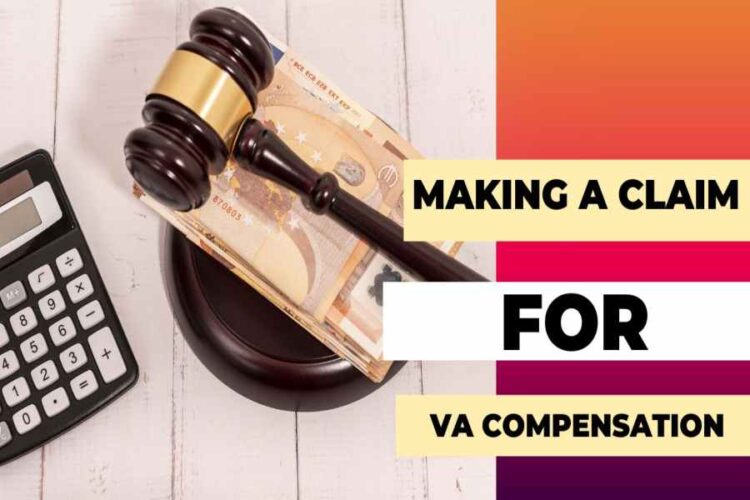Many veterans are entitled to some form of benefit, but many are unsure where to start with finding out about eligibility or filling a claim. Filing for VA disability compensation might seem like a maze, but you can always opt for the help of a specialist lawyer for veterans. This guide is designed to walk you through every step of the way.
We’ll talk about how to file a claim, gather your evidence, deal with medical examinations, and appeal if needed. By learning more, you can ensure you get what’s rightfully yours. So, let’s find out more about making VA claims adventure together.
Eligibility Check
First things first, let’s make sure you meet the requirements:
- Military Service: You need to have served in the military. No dishonorable discharge is allowed.
- Disability Rating: Your condition should be rated by the VA as 0-100% disabling, with at least 10% required for compensation.
- Discharge Status: Honorable, under honorable conditions, or general discharge is required.
Time Limits
There are no time limits to file a disability claim with the VA. However, you should file as soon as possible to avoid missing out on benefits. The effective date of your compensation will depend on when you file your claim. Claims filed within one year of separation may allow for an earlier effective date.
Meeting these requirements is essential to qualify for and receive VA disability compensation. But the process doesn’t stop there. You must file a claim for benefits, and submit evidence to support your claim, and the VA will determine if your disabilities are service-connected and rate them appropriately. With the right documentation and persistence, you can get the compensation and benefits you deserve. Now, let’s move on to the next step.
Evidence Needed To Support Your VA Claim
To have the best chance of getting your VA claim approved, you’ll need to provide solid evidence to support it.
- Medical records. The VA will want to see medical records from private doctors, hospitals and clinics showing diagnosis and treatment of your conditions. Provide records of doctor visits, hospital stays, therapy, medications, and medical tests. The more detailed records you can provide, the better.
- Service records. Records from your time in service can help link current disabilities to injuries or events that happened while you were serving. Things like enlistment and separation physicals, sick call visits, awards, reprimands, and job performance reviews may be relevant. Comb through your own records to find anything that could support your claim.
- Witness statements. Written statements from people who witnessed events in service that led to or aggravated your disabilities can be persuasive evidence for the VA. Get statements from fellow service members, supervisors, medics corpsmen, or anyone else with firsthand knowledge of what happened to you. Their accounts of events can help bring your claim to life for the VA adjudicator reviewing your case.
- Nexus letters. A medical nexus letter is a statement from your doctor explaining how your current disabilities are connected to your time in service. Ask your doctor to review your medical and service records and provide an opinion on whether your disabilities were caused or aggravated by injuries or exposures during your military service. Nexus letters can be crucial for establishing the necessary link between your service and health issues.
Filing Your Claim
Now, to get your claim in:
- Gather Your Records: Make sure you’ve got all your documents lined up and ready to go.
- File Your Claim: Go on the VA’s website or fill out the paper form.
- Attend Exams: If the VA needs more information, they’ll schedule an exam for you.
Once this is done, your claim is in. After this, it’s just a case of waiting.
Claim Review And Decision Process
The VA’s got your claim – what happens next?
- Initial Review: First, an initial review of your application is performed.
- Evidence Evaluation: After this, they will take a closer look at your medical records.
- Decision Notice: You’ll get the verdict after officials have completed their reviews and checks.
Appealing A Denied Claim
If your claim application is denied, there are options:
- File a Notice of Disagreement: Let them know you’re not happy with the decision.
- Request a DRO Review: Sit down with a Decision Review Officer and discuss the decision.
- Appeal to the BVA: You can plead your case with the Board of Veterans’ Appeals.
It might be a long road, but you have to be persistent. It is also worth turning to expert legal assistance, as this can make the process far easier for you.
Your Roadmap To VA Compensation Benefits
Once you’ve familiarized yourself with the process with this guide to VA compensation benefits, you should be ready to make your claim. It might seem like a challenging mission, but armed with this guide and the right expert help, you’ll be able to tackle it head-on.
It’s important to take it step by step, stay organized, and keep pushing forward. As a veteran, you’ve earned these benefits, so you should make sure you do everything you can to get the compensation you are entitled to.










